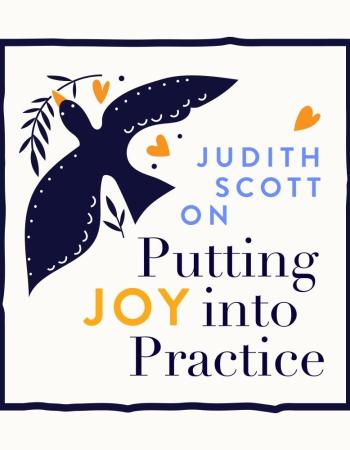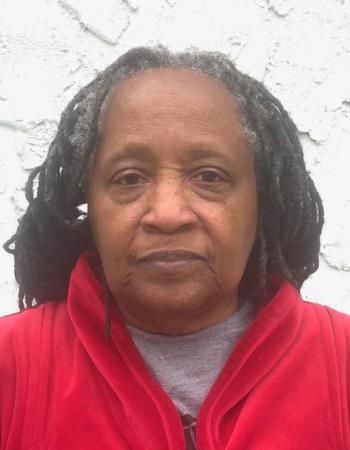
The first in a series of four blog posts reacting--in advance of our upcoming webinar--to Phoebe Farag Mikhail's book Putting Joy Into Practice. Tasoni Phoebe herself will be leading the webinar on March 19 at 7:30 Eastern, with a focus especially on the practices of fasting and hospitality. Here's Judith's take on reading the book in a dark time:
Lord, Jesus Christ, Son of God, have mercy on me, a sinner.
(Jesus Prayer)
When I fall on my knees with my face to the rising sun,
Oh Lord, have mercy on me.
(African American Spiritual)
Phoebe Farag Mikhail’s Putting Joy Into Practice is a joyful, encouraging book–and it is challenging. We read that by practicing seven exercises, habits of thought and habits of mind, we can feel the presence of God and know joy, even in the bleakest circumstances. But I was skeptical. Really.
I was already trying to filter out the horrors of the war in Ukraine, so I could know what was happening and not lose myself in grief and anger. Long Covid was still keeping me away from my formerly active, energetic, and expansive life. Indeed it was laying me low and infecting more and more people. And the vibrant city that is my home is still largely empty of street life, everyone seemingly reduced to sharing our images on little squares on computer screens and remembering to turn off mute before we talk. But I was holding it together in a low-level funk. And then came the video of the police beating and subsequent death of Tyre Nichols. And I lost it in a full-blown eruption of fury, bitterness, indignation, and hopelessness. No. No exercise would bring me joy in this situation.
Farag Mikhail writes: “Yet as we discover more joy, we can face suffering in a way that ennobles rather than embitters. We have hardship without becoming hard. We have heartbreak without being broken. … This is how St. Paul can exhort his congregations to ‘rejoice in the Lord always’ (Philippians 4:4), even while he is in chains. Thus, martyrs can face certain death with thanksgiving, and their loved ones receive news of it with joy, even while they also feel the pain of loss.”
This is impossible. And then I read about one of Farag Mikhail’s recommended arrow prayers, “Lord have mercy,” said throughout the day silently or out loud. This is close to St Paul’s counsel to pray without ceasing. This made me remember the Stephen Ministry’s adage from Psalms, “Don’t sing songs to a broken heart.”
That meant I had to step back, to find a place of stillness, “a place to sit quietly and say, ‘Lord have mercy.’” And then I felt a connection to something familiar to me. We say “Lord have mercy” hundreds of times in liturgy. And every time I say it I think of my father and all the African American people I know from the Deep South who shook their heads and spoke these words. It was a cry for relief from pain, for comfort in the depths of grief, for expressing empathy for those going through hard times. It was an exclamation of astonishment about the continued horrors inflicted on the community, a call for protection, and at times a recognition of the irony of our situation… tired and tried and surviving nonetheless.
“Lord have mercy” is a plea wrapped in irony: it means we recognize God’s gifts, God’s power and loving-kindness at the same time that we are suffering, feeling beyond the reach of God’s presence, living for generations as the enslaved, the powerless, valued only for our labor, whose fruits belong to others.
“Lord have mercy”: “It’s too much. It’s too much to carry. I can’t do this alone.”
“Lord have mercy”: “Give me favor, show me a sign, God.”
She slipped away at night and made it all the way to freedom in the North: “Lord have mercy.”
So yes, even in the depths of sorrow and oppression, we can reach out to find the small light in the darkness, the joy in overwhelming despair, to feel that Jesus is with us as he was with the disciples on the road to Emmaus. How close Orthodox theology is to the African American spirituality that brought generations of enslaved and persecuted people to the present day. The struggle is not over. We cry, “How long, Oh Lord?” and we say, “Lord have mercy.”
Read the book, for solace, patience, understanding, and down-to-earth spiritual advice.
Judith Scott holds a masters in theology from Union Theological Seminary.



